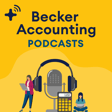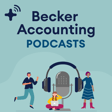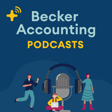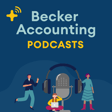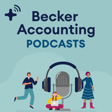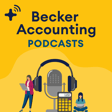
Balancing the Future Ep. 6 - A Seat at the Table: Creating and establishing paths for Black business leaders with Guylaine Saint Juste
Guylaine Saint Juste, President & CEO of the National Association of Black Accountants (NABA), joins Christopher Mitchell to discuss how DEI initiatives are changing (not always for the better) and the importance of having an organization to represent the voices of Black business leaders and create spaces for connecting, and learning. They also dig deeper into the "pipeline issue" amidst corporate layoffs and how to create, establish, and maintain a space at the table.
Earn CPE by listening to this podcast through a Becker Prime CPE subscription.
Listen to this episode through your Becker LMS platform to complete practice questions, pass the final exam, and earn CPE credit.
Already a Becker Prime CPE customer? Login here.
Have access to Becker CPE through your employer? Earn CPE credit for this podcast however you consume Becker CPE, either through your company’s LMS or via the Becker platform. Not sure where to log in? Check with your CPE admin.
Learn more about CPE Podcasts from Becker: https://www.becker.com/cpe/becker-podcasts
